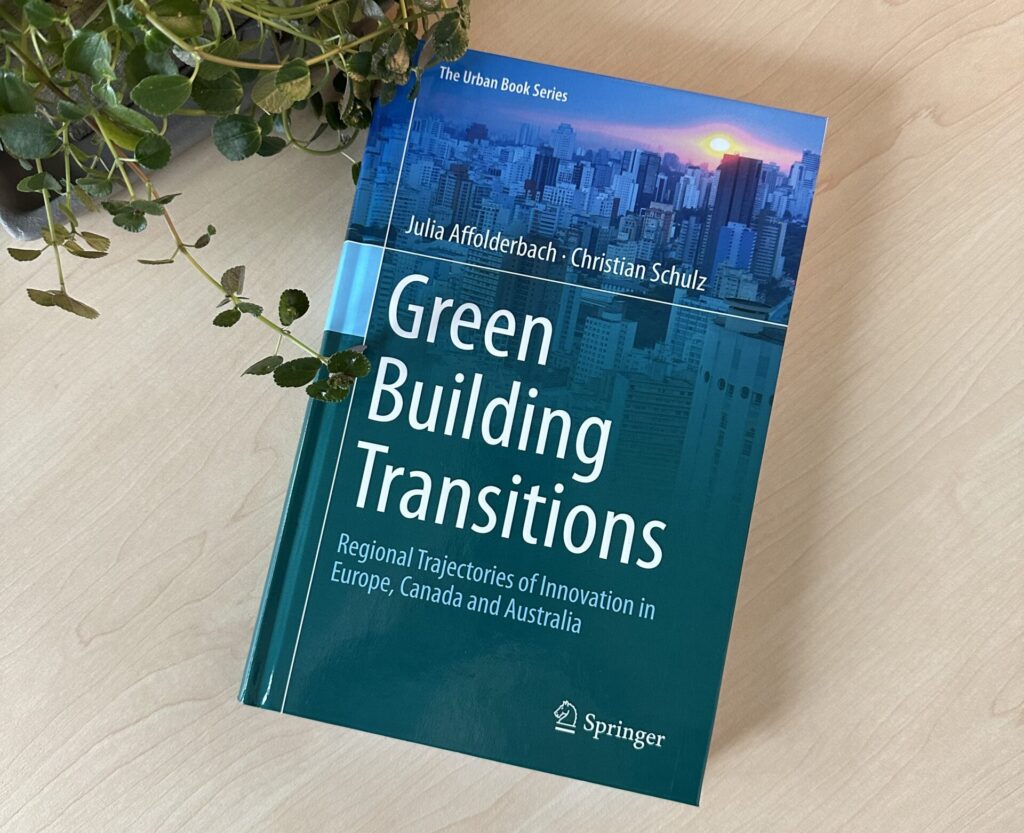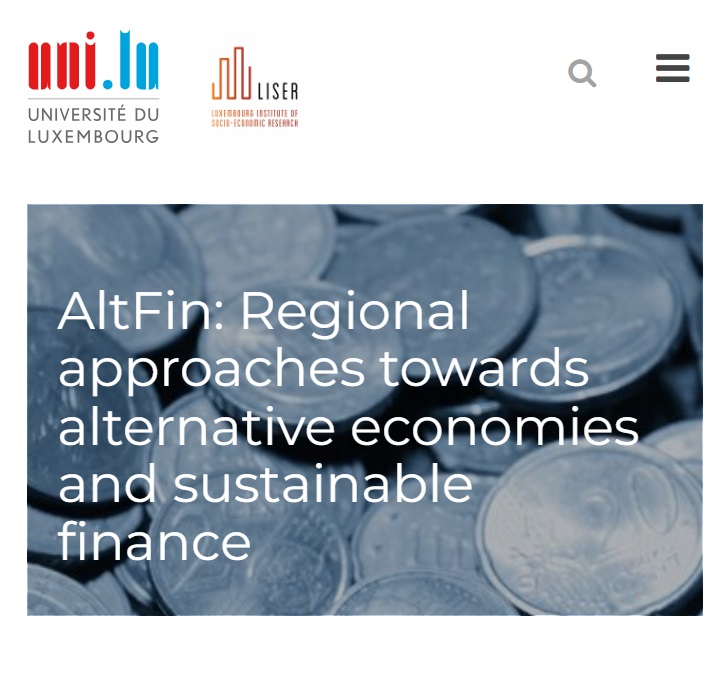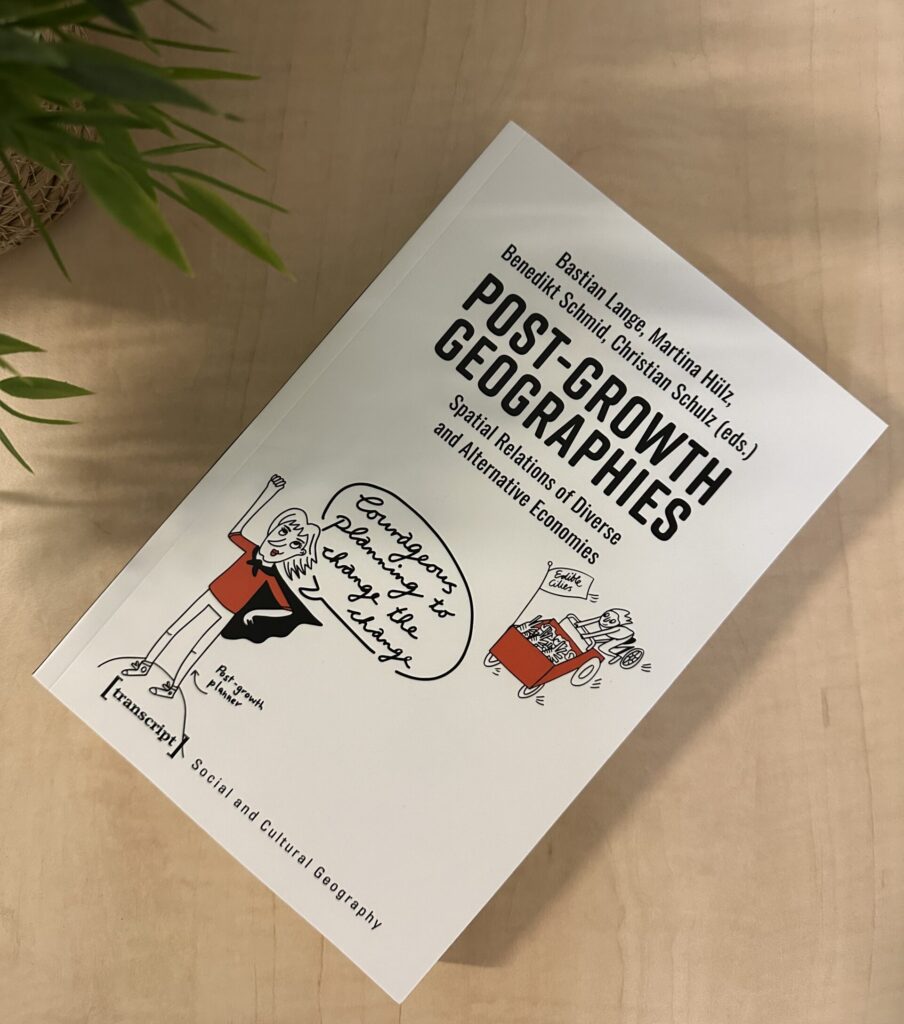BACK TO RESEARCH WITH IMPACT: FNR HIGHLIGHTS
As the FNR marks 25 years since its creation, we highlight 25 examples of FNR-supported research with impact. One of the first researchers to adopt post-growth ideas in economic geography, Christian Schulz heads a team actively contributing to Luxembourg’s future socio-economic development.
“Climate change, biodiversity loss and resource scarcity range amongst the most pressing issues of our times. With our work on the transformative potential of firms, we contribute to sustainable pathways,” explains Christian Schulz, who has been Professor of Geography and Spatial Planning at the University of Luxembourg since 2006.
Prof Schulz and his team are interested in societal transitions towards sustainability, specifically, in the role firms can play to make the economy more environmentally friendly and socially just. The team has for example looked at sustainability efforts in the building industry.

“It has become obvious that technological advances alone – for example passive house standards or advanced heating systems – can only be part of a solution. Post-occupancy – the behaviour of users of a building – is equally important, as is coherence with the wider urban context, such as transport infrastructures and green spaces, to make green building endeavours successful. ”Christian Schulz Professor of Geography and Spatial Planning at the University of Luxembourg
The team’s research is acknowledged by business associations, national and local authorities, as well as civil society organisations dealing with sustainability issues.
“In studies for various Ministries as well as for the Conseil Supérieur pour un Développement Durable (CSDD) we actively contributed to ongoing debates on Luxembourg’s future socio-economic development.”
AltFin: Regional approaches towards alternative economies and sustainable finance
In the project AltFin – a project jointly initiated and co-coordinated with Dr. Sabine Dörry from the Luxembourg Institute of Socio-Economic Research (LISER)- Prof Schulz and team are looking to better understand regional economic development at the interface of alternative economy approaches, specifically circular economy and sustainable finance. The goal is to get an understanding of mechanisms that will guide regional transitions towards sustainable development.
The project focuses on regional institutions in France, Germany, and Luxembourg, analysing their adaptation to support circular economy initiatives. The team is for example investigating mismatches between local finance needs and global finance supply, proposing a framework for institutional change to strengthen sustainable development. The revealed a particular role of public development banks, e.g. the European Investment Bank as well as respective national and regional organisations.


Growth of the research field and future challenges
Prof Schulz, who was among the first researchers adopting post-growth ideas in economic geography, has shared the important knowledge gathered in contributions to international handbooks, a dedicated textbook, journals, as well as presenting at various conferences and roundtable discussions. This has contributed to an increasing visibility of this approach and its potential for geographical research.
“The field has dynamically evolved and diversified. While international mainstream research adheres to a narrow understanding of the green economy, that is the aspiration to reach sustainability merely through technological progress, an increasing number of scholars including myself searches for post-growth oriented practices inducing more profound changes within the economic system. ”
Prof Schulz explains that research in the field of sustainability transitions and the societal demand for answers will continue to increase.
“With our team, we are keen to further contribute to national and international debates, both within and outside academia.” Findings from ongoing research on the financial sector, as well as from planned investigations into the bioeconomy, the team intends to publish dedicated books, articles, as well as policy briefs.
“The most pressing question in our field is how alternative economic practices can be scaled up and can inspire changes and innovation in incumbent sectors. Also, the role of the state as both regulator and facilitator remains to be further explored with regards to the design and management of appropriate transition strategies. ”Christian Schulz Professor of Geography and Spatial Planning at the University of Luxembourg
Christian Schulz on the impact of FNR funding
“The generous funding from the FNR and the flexibility given to the researchers allowed us to inquire into a range of sectors and actor groups. Three consecutive CORE projects have helped to build-up a robust knowledge base as well as productive collaborations with reliable partners in Luxembourg and several other countries. Also, the FNR funding has enabled me to recruit promising talents from abroad, enriching Luxembourg’s research environment and labour market.”
“Additionally, via its INTER scheme, the FNR funding has helped to strengthen collaboration with universities abroad. Other national stakeholders could be included as direct (e.g. LISER) or indirect (e.g. Luxinnovation) partners. The new WEAVE programme co-funded by the FNR (INTER) offers compelling opportunities for multilateral consortia we are currently exploring with partners from several European countries.”
About training researchers
“With the help of FNR grants (CORE and AFR), I have been able to mentor two postdocs and five PhD candidates. Indirectly, another 5-8 junior researchers in our team have profited from inspiration through FNR-funded activities. Overall, the funding has helped to build-up a topically focussed team with talents from different disciplinary and geographic backgrounds.”
Christian Schulz’s FNR-funded projects (Principal Investigator)
| Project title | FNR Funding Instrument | Call year |
| Regional approaches towards alternative economies and sustainable finance (AltFin) | CORE | 2019 |
| Challenges for the implementation of Circular Economy policies: practices, institutions and hybrid intersections | CORE | 2016 |
| Green building in regional strategies for sustainability: multi-actor governance and innovative building technologies in Europe, Australia, and Canada (GreenRegio) | INTER | 2012 |
Related highlights
25 examples of research with impact: Smart materials for a sustainable future
As the FNR marks 25 years since its creation, we highlight 25 examples of FNR-supported research with impact. Since arriving…
Read more
25 examples of research with impact: Advancing AI and Computer Vision: From space tech to better healthcare
As the FNR marks 25 years since its creation, we highlight 25 examples of FNR-supported research with impact. Since arriving…
Read more
25 examples of research with impact: Understanding the evolution of the workplace in the digital era
As the FNR marks 25 years since its creation, we highlight 25 examples of FNR-supported research with impact. Active in…
Read more
25 examples of research with impact: Breaking barriers in cancer research & treatment
As the FNR marks 25 years since its creation, we highlight 25 examples of FNR-supported research with impact. In Luxembourg…
Read more
25 examples of research with impact: Shaping the future of historical research in a digital age
As the FNR marks 25 years since its creation, we highlight 25 examples of FNR-supported research with impact Andreas Fickers…
Read more
25 examples of research with impact: Harnessing nature’s power for a sustainable future
As the FNR marks 25 years since its creation, we highlight 25 examples of FNR-supported research with impact. Since arriving…
Read more